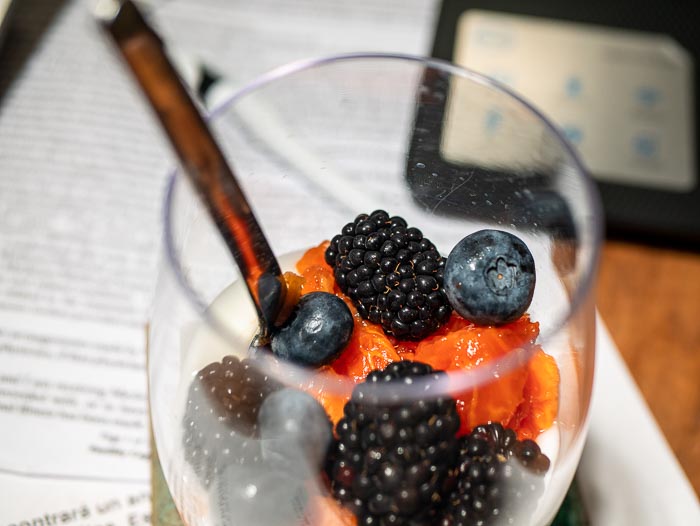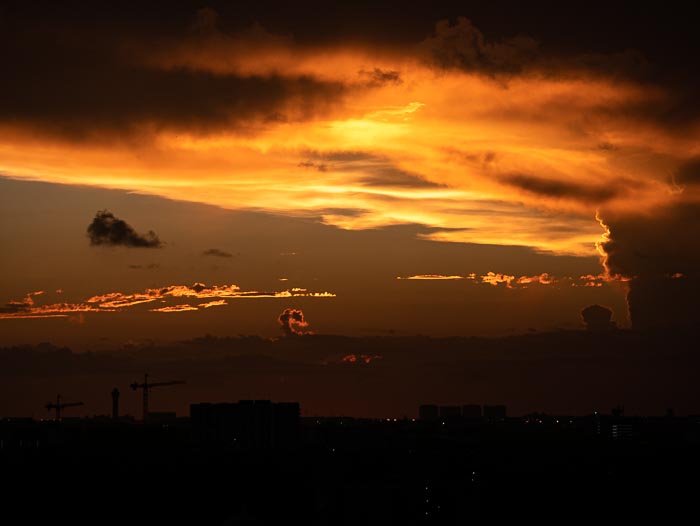

Some Chicago Boyz know each other from student days at the University of Chicago. Others are Chicago boys in spirit. The blog name is also intended as a good-humored gesture of admiration for distinguished Chicago School economists and fellow travelers.

Very exciting stuff, which I barely got started with over at my own site on Wednesday.
I link again to the paper in Nature by Alex Ioannidis et al about Native American-Polynesian contact before the Columbian period. One commenter alertly picked up that this is the Thor Heyerdahl Kon-Tiki hypothesis from decades ago. The paper references this in the first paragraph. The Norwegian sailed a hand-made reed boat from South America to French Polynesia in the 1940’s in order to prove it could be done. He believed that the initial settlement of Oceania came from Peru and Chile, and that these people were later in contact with and eventually displaced by people in double-hulled canoes around 1100 AD. That the Polynesians have the sweet potato, a New World food, has always provided some support for this theory, though plants can also wash ashore from distant places as well.
The new paper identifies 2-3% genetic similarity in the Polynesians, especially around the Marquesas Islands, with Native American tribes in Ecuador and Colombia (Zenu) from a single* contact event around 1200 AD, before the settling of Easter Island (Rapa Nui). Because the distances are ridiculous, all theories about how this occurred seem unlikely, but there it is. It happened somehow. Did these two groups have contact in the Marquesas, or did the Polynesians keep on sailing until they reached Ecuador? If you pull up your map of the Pacific Ocean, both look extremely unlikely. The later Polynesians were extreme sailors and covered vast distances. Such peoples must not only be able to navigate using subtle signs of sky, water, and birds, they must be adapted to living on the water for long periods. To us getting in a boat is a temporary act, but for them this was much less true. Whole groups took to the open sea together, bringing with them what they needed to found colonies whenever they did reach land. There are fishing peoples who spend most of their lives on the water in SE Asia, but these stay close to land. Still, it can be done. The Austronesians were great sailors, getting all the way to settling Madagascar off the east coast of Africa to Hawaii and Easter Island in the Pacific. Plus, if you keep sailing east, South America is hard to miss. They had a culture where people struck out onto the sea looking for new places to live, likely for cultural reasons that are now lost to us. Notice that these are in similar latitudes, so that the taro and banana and coconut plants would be likely to grow in a new location. North-south movement and settlement is much more precarious on both land and sea. One of the things that Jared Diamond did get right.
The book Citizens of London by Lynne Olson was published in 2010 – my wife came upon it recently and recommended it to me. If you are looking for further evidence that Franklin Roosevelt was a horse’s ass and that Joe Kennedy should have stood trial for treason, this will please you. Do not read the Introduction, as Olson merely uses it to illustrate that she is a rather cliched citizen of Washington DC, with at least some of its bubble prejudices. This is perhaps necessary if one writes approvingly about America’s history, even WWII, in order to fit in there, but it intrudes on the narrative for those outside the Acela Corridor. Her politics do bleed through a bit, as she is quite clear what were good progressive domestic policies of the day and which were old regressive bad ones, but even I, who am very easily irritated by such things, liked her telling of the story of America’s entry into the war well enough to overlook them.
Olson focuses on three Americans – CBS broadcaster Edward R Murrow, business heir Averill Harriman, and especially Gil Winant, American ambassador to the UK following the execrable Kennedy. She credits them with shepherding the relationship between Roosevelt and Churchill, the military staffs, and the American and British people in general enough that they could work together well enough to fight a war. We regard such cooperation as automatic now and are aware of a “Special Relationship,” however much Barack Obama did to undermine that during his presidency. Yet our nations’ positive feeling for each other now is largely a result of that successful cooperation. There was considerable misunderstanding and animosity on both sides leading up to the war.
John Gilbert Winant
A friend who was a history and business professor and is also the designer of a detailed WWII wargame once commented to me how empty our historical what-ifs are, specifically in relation to the idea that the US could have saved many Jews by bringing them to America in the 1930s. While entirely agreeing that taking as many as we could squeeze in would have been of enormous benefit to American science, arts, and business, he waved the thing off as impossible. There was no way that we were going to take in additional people when there was 25% unemployment, and Jews were considered far too different for a nation that had excluded an entire continent from any immigration only a few years before. Americans, especially outside the Eastern cities, didn’t like Slavs and Irishmen and barely tolerated Scandinavians. Citizens of London will remind you that we didn’t even like the British all that much. We believed ridiculous things about them (and they about us). Our isolationism was widespread, and intense. If Europe and Asia wanted to tear each other to pieces, let ’em, it was no affair of ours, and even England was not an exception. Once you came here you were expected to adopt much of the same attitude yourself in order to be regarded as American at all.
The governors of five of the six New England states announced jointly today that each would be changing its name as of January 1st, 2021. Massachusetts and Connecticut both apologized for centuries of cultural appropriation by ripping off local toponyms from native peoples, using the names for areas occupied by white colonialist settlers, while Maine and Rhode Island confessed that their names had originated from white colonialist oppressors, replacing the perfectly good Native American names that should have been kept. Governor Chris Sununu of New Hampshire stated that the Executive Council had considered standing pat because “the name just means new home town shire,” but ultimately decided that “new” “home,” “town” and “shire” all had oppressive or citizenist connotations anyway and should be discarded. “We will probably go with Granite State – though even “state” is problematic,” he said. “White Mountain State is clearly right out.” There is already a petition circulating in Portsmouth to switch to “Statey McStateface.”
Massachusetts is considering changing to “Airstrip One;” Maine may simply drop the final “e” because it’s easier to spell; and Rhode Island, already annoyed at having to change the coolest state name in the country, is contemplating secession.
Only Vermont is retaining its traditional name, though Governor Phil Scott admitted this is provisional. “We think ‘Mountain’ is inoffensive, and ‘Green’ has the advantage of also being the name of one of the few acceptable political parties this year. Still, you never know. Someone might come up to the State House tomorrow and declare themselves offended, and we’d have to honor that.” In the meantime, the state has decided to change the names of most its towns, beginning with White River Junction and St Alban’s, owing to their unbearable whiteness and the unfortunate religious origins of the latter. “Because almost everything is either cultural appropriation or cultural hegemony, we thought we would just move to identifying every place name by its current initial letter,” Governor Scott explained. “Unfortunately, in Vermont everything of any importance begins with a B, so it won’t be much help on your GPS” he added, throwing up his hands. The residents of Montpelier immediately took to the streets with hastily-lettered signs in protest upon hearing that explanation.
Government officials from every other named place in the world declined to comment.
